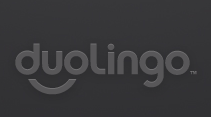 In 2005, then-Carnegie Mellon PhD grad student Luis von Ahn had an idea for a game. In one of the first examples of true crowdsourcing, he had people looking at images and labeling them to improve image search. Google acquired ESP Game in 2005 and renamed it Google Image Labeler.
In 2005, then-Carnegie Mellon PhD grad student Luis von Ahn had an idea for a game. In one of the first examples of true crowdsourcing, he had people looking at images and labeling them to improve image search. Google acquired ESP Game in 2005 and renamed it Google Image Labeler.
In 2007, now-Professor von Ahn had another idea. He realized that all the time people wasted typing in CAPTCHAs could be used for some good: helping to digitize books. Out of Carnegie Mellon he launched the project as reCAPTCHA, a startup. And guess what? In 2009, Google bought it as well.
Now von Ahn is back again.
Duolingo is his latest project. It has been blowing up on Hacker News for the past day, though not too much is known about it. But we got a chance to get a bit more out of von Ahn, and not surprisingly, the idea is very cool.
Von Ahn notes that over the past year and a half, his Carnegie Mellon team has been quietly working on this new idea. It originally arose from a single question: how can you get 100 million people on the web translating everything into different languages for free?
One problem is that there aren’t that many people that are truly bilingual. Another problem is the whole “free” thing.
So along with his PhD student Severin Hacker (yep, that’s his name), von Ahn twisted the idea on its side. Instead of getting people to do something that felt like unpaid work, why not spin it as a learning experience? That’s exactly what Duolingo does.
“The solution was to transform language translation into something that millions of people WANT to do, and that helps with the problem of lack of bilinguals: language education,” von Ahn writes. It is estimated that there are over 1 billion people learning a foreign language. So, the site that we’ve been working on, Duolingo, will be a 100% free language learning site in which people learn by helping to translate the Web. That is, they learn by doing,” he continues.
Smart.
Von Ahn didn’t want to give too much else away as their still finalizing the service. He notes that it should be ready for a private beta in a few weeks. “We’re now mostly testing the site, and it really works — it teaches users a foreign language very well, and the combined translations that we get in return are as accurate as those from professional language translators,” he says.
He also says that while it’s currently just a project under Carnegie Mellon, he and Hacker may turn it into a company. And if they do, the countdown to Google buying them will officially be on. I give it 6 months until that happens. Tops.